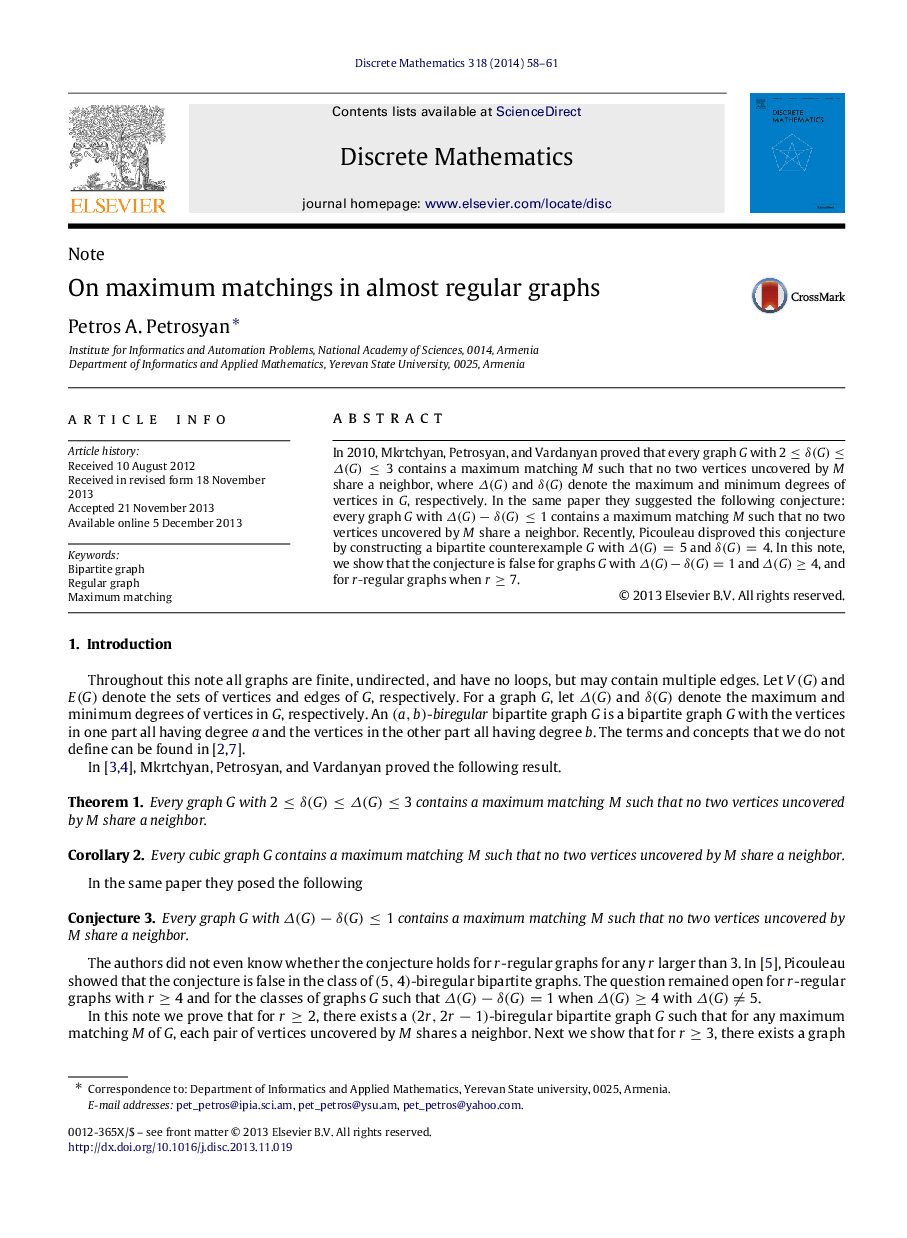| Article ID | Journal | Published Year | Pages | File Type |
|---|---|---|---|---|
| 4647438 | Discrete Mathematics | 2014 | 4 Pages |
Abstract
In 2010, Mkrtchyan, Petrosyan, and Vardanyan proved that every graph G with 2â¤Î´(G)â¤Î(G)â¤3 contains a maximum matching M such that no two vertices uncovered by M share a neighbor, where Î(G) and δ(G) denote the maximum and minimum degrees of vertices in G, respectively. In the same paper they suggested the following conjecture: every graph G with Î(G)âδ(G)â¤1 contains a maximum matching M such that no two vertices uncovered by M share a neighbor. Recently, Picouleau disproved this conjecture by constructing a bipartite counterexample G with Î(G)=5 and δ(G)=4. In this note, we show that the conjecture is false for graphs G with Î(G)âδ(G)=1 and Î(G)â¥4, and for r-regular graphs when râ¥7.
Related Topics
Physical Sciences and Engineering
Mathematics
Discrete Mathematics and Combinatorics
Authors
Petros A. Petrosyan,
